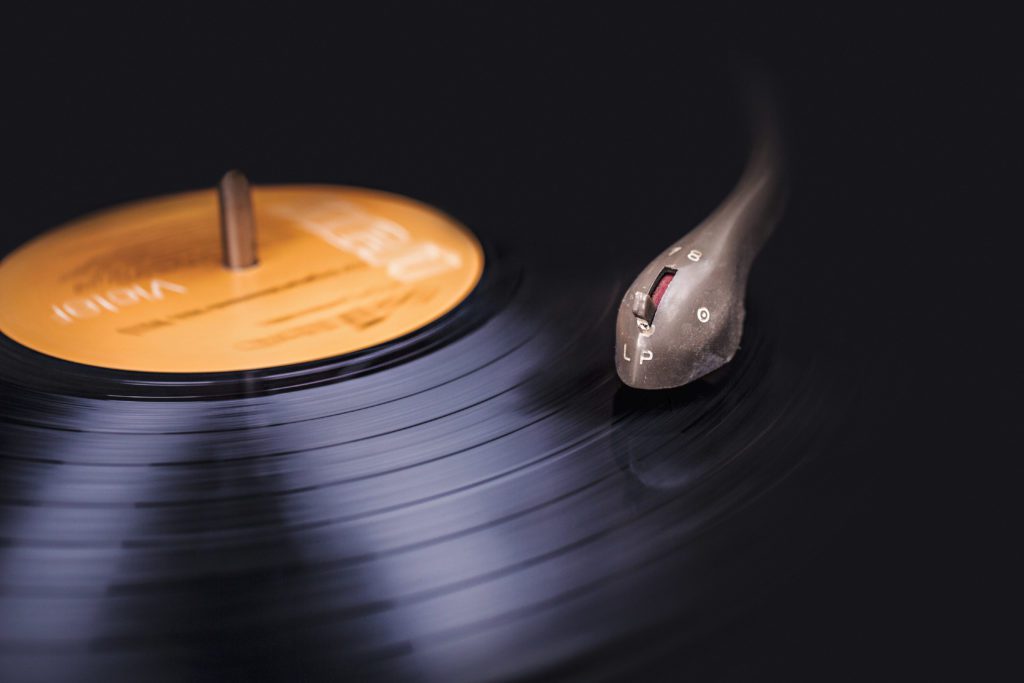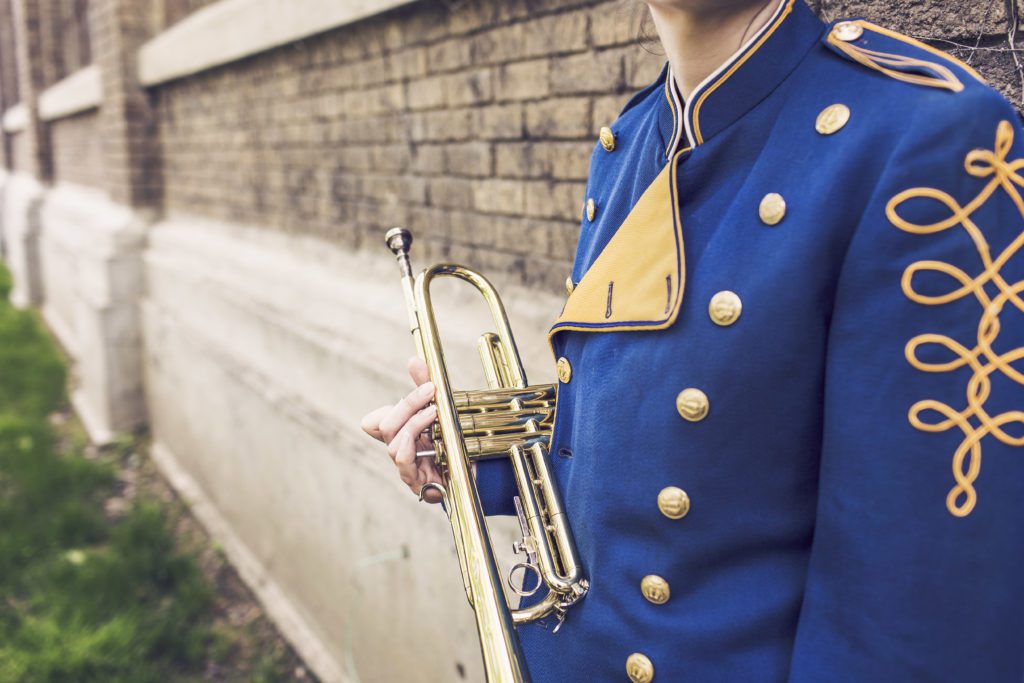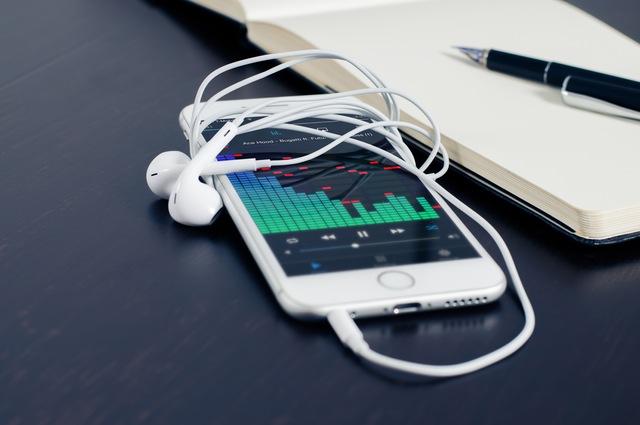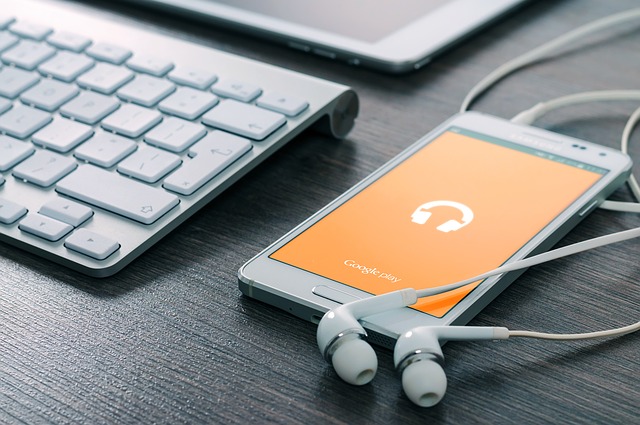Mu sic is a huge component of human culture and tradition, yet it is also something that often gets overlooked. It’s easy to think that music is simply something to listen to when we want to relax a little bit or to enjoy ourselves.
sic is a huge component of human culture and tradition, yet it is also something that often gets overlooked. It’s easy to think that music is simply something to listen to when we want to relax a little bit or to enjoy ourselves.
While this is true, music is also so much more. In particular, there is a connection between music and seniors, meaning that playing music for elderly parents may offer significant benefits.
Music Therapy and Music Programs
There is a growing movement towards the use of music programs and music therapy to support seniors. Music therapy is an interesting approach because it focuses on the importance of music and the way that music is connected to our emotions.
Because of this, music therapy can be especially relevant to patients with memory loss or dementia.
One of the reasons for this is that it is relatively easy for people to access their memory of a given song, rather than a more complex memory, such as an event. At the same time, older adults retain the ability to identify and respond to music, even though the way that they respond to it may not be the same as when they were younger.
Additionally, music can subconsciously help people to relax and it can boost mood. For dementia patients, that process of relaxation could help decrease stress and could even promote some more positive outcomes.
Likewise, the ability of music to improve mood could play a role in decreasing depression risk.
There are a range of formal and informal programs out there that involve music. This includes formal music therapy programs, some of which are specifically targeted at dementia patients.
However, there are other ways to get involved in music in a social setting.
 For example, you could see a band play at a park or even go to the opera. Likewise, many senior centers host events that revolve around music, such as live performances from time-to-time, or even music lessons in some cases.
For example, you could see a band play at a park or even go to the opera. Likewise, many senior centers host events that revolve around music, such as live performances from time-to-time, or even music lessons in some cases.
So, it’s worth taking a look and seeing what programs are available in your area. You may well find something that’s relevant.
Music in Your Own Home
Music therapy can be significant but the importance of music and seniors isn’t just limited to this setting. Instead, music is something that you can use in your own home to help support seniors.
In fact, you may even find that the music helps you as well.
The reality is that music is a critical part of our life and it is something that we are exposed to from very early on. In fact, music will often act to relax us subconsciously, even though we don’t always realize that is happening.
For caregivers, this pattern suggests that importance of filling your home with music.
One recommendation is to try and match music with mood, rather than playing the same sort of music the entire type. In taking this approach, you would still choose music that you enjoy but you might focus on faster music when people are upbeat or engaged in activity and slower music at other times.
Playing music for elderly parents is also especially important because they will have good memories of many types of music.
 Music doesn’t just have to be an auditory experience either.
Music doesn’t just have to be an auditory experience either.
For example, there are many music DVDs out there that show a specific concert or offer a documentary.
In my own experience, I found that my elderly mother-in-law really enjoyed movies that were the stories of bands that she knew. For example, there is a 1998 movie The Temptations that we ended up watching multiple times, along with The Doors. We also watched Walk the Line a number of times.
Even though she didn’t understand everything that was happening, the films did offer an important connection to the past and I noticed that we all had a good time watching them.
However, as a caregiver, it is important to realize that your experience of the film is likely to be different than the person you are caring for. That’s okay but it’s often important to simply let them enjoy the film, rather than trying to make sure they understand it.
In my case, one thing I found was that my mother-in-law had the same general perspective of films and of documentaries. So, in both cases, she would view all the information given as fact.
To me, that was a frustrating situation but I quickly learned that there was no real point in arguing. I would still end up correcting her from time-to-time but I chose not to make a big deal out of the issue. After all, part of the concept is to help seniors relax, which means that you don’t want music to be a stressful experience for anyone.
Accessing Music
For some people, the connection between seniors and music might seem a little challenging, simply because music can be expensive. Additionally, you may not want to be listen to music as often as the senior in your house.
So, how do you get around these issues?
Choosing a Good Device
If the person you are caring for is enjoying listening to music, one option would be to get them an MP3 player or a smartphone to listen to music. Devices like this can seem a little bit confusing at first but the process can get easier if you just focus on using the device for listening to music. In particular, if they just focus on one function of the device, it can be easier to remember.
 One approach might be to use an Android tablet or an iPad with accessibility features. This would make it easier for seniors to see the text and the icons.
One approach might be to use an Android tablet or an iPad with accessibility features. This would make it easier for seniors to see the text and the icons.
It is also possible to use a very basic MP3 player, such as one where the point isn’t to look at the screen. The iPod Shuffle is one example of this (affiliate link). The device is small (which is a disadvantage), but it just has five buttons, which makes it exceptionally easy to use.
With this kind of MP3 player, the senior cannot pick what songs they listen to and the device will simply shuffle through them (although users do have the ability to skip songs). That approach can work well because of its simplicity, especially if you only load music that seniors like onto the device.
There is also a device known as the Victor Reader Stream (affiliate link). This device has a few disadvantages, including the fact that it is fairly expensive and that it is a little complex to learn. Those issues may make it unsuitable for many seniors and situations.
However, the device is an interesting option because it is specifically designed for people who are blind or have impaired vision. As such, the device is a powerful option for seniors who have difficultly seeing.
Of course, you don’t need to use a device for music if you don’t want to.
In some cases, you may simply choose to play music for a senior from a computer or you may just use a CD player or even a record player.
In fact, there is something to be said for more traditional approaches for listening to music, especially as these are the approaches that seniors will remember. Buying a senior a CD player and some old CDs could actually be a fairly inexpensive way of listening to music, especially as CDs from your parent’s era are likely to be cheap.
For example, you can often get lucky with bulk lots of CDs from eBay or Craigslist. Additionally, second hand stores will often have a large number of CDs for a low price.
Radio Stations and Renting Music
When it comes to music, the simplest option is to buy it, either physically or digitally. However, that process can often be expensive, especially if you want to listen to a large variety of music.
As I mentioned above, buying older CDs can be one way around this issue, especially if the CDs are second hand. Nevertheless, that approach won’t work for all types of music, especially in cases where the CDs you want are hard to find.
Thankfully, there are now a large number of digital services that can help you access music.
 For example, services like Spotify, Jango and Pandora are streaming music services. These sites let you stream music from a large range of artists and genres. Additionally, they tend to use algorithms to predict music that people might like, based on the artists they already like, the songs they listen to and the songs they like.
For example, services like Spotify, Jango and Pandora are streaming music services. These sites let you stream music from a large range of artists and genres. Additionally, they tend to use algorithms to predict music that people might like, based on the artists they already like, the songs they listen to and the songs they like.
There are also stations that cater for specific needs, such as stations for eras of music (60’s, 70’s etc.) as well as stations designed for specific genres, like classic rock.
Many of these services have a free (ad-supported) version, as well as a paid membership. Typically, the paid version will be free of ads or will have very few ads. Additionally, the paid version may also provide access to more songs.
At the same time, some other companies offer similar services that are a little bit different.
For example, both Amazon and Google Music offer their own version of this approach. With Amazon, the system is called Prime Music. Unlike the other ones that I’ve mentioned, this isn’t really internet radio.
Instead, you can listen to any of the music that is in the Prime catalog. The music choices aren’t as extensive as what you find with internet radio.
However, with internet radio you typically cannot select a specific song or album to listen to. With a service like Amazon Prime, you can. Amazon’s service also has some playlists, although users can make their own as well.
 Google Music’s approach works in a similar manner, although the service does also have a pretty good algorithm for figuring out what music a person is likely to enjoy.
Google Music’s approach works in a similar manner, although the service does also have a pretty good algorithm for figuring out what music a person is likely to enjoy.
There is no simple answer for which service is best and you may find that one suits your needs more than another. There are also other similar services that I haven’t mentioned here, such as the radio service at iTunes.
It may simply be a matter of trying out different services and finding which one works best for you. In most cases, the services have a free trail, so you could get quite a lot of music listening just by doing all of the trials.
In many cases, the biggest difference between these services is simply the music selection. So, the answer may be to choose the service with the most music the senior likes.
Final Thoughts
There are lots of ways to incorporate music into your household, including many more ways than the ones I’ve covered here.
With how digital the world is becoming, using things like smartphones and internet radio does make a lot of sense. However, the approach might not work for everyone. In many cases, seniors may simply find that older ways of listening to music are more comforting.
Whatever the approach, music can have a major impact on seniors and it could also make your caregiving experience easier. If nothing else, the approach is certainly worth a try and you may well find that you enjoy it more than you expected to.
Feeling Overwhelmed?
Check out our Caregiving Consulting service for personalized support and guidance.

I love your suggestion about matching the must with the mood for seniors and caregivers. I sometimes help take care of my grandma and she just seems bored a lot of the time, even when we are trying to have fun. I definitely think that putting on some upbeat music during the fun times would really help elevate the mood. Maybe I will ask her what some of her favorite songs are and play them for her when we are together. http://www.lyrichouseco.com/
Music is such a powerful tool, much more so than we tend to realize. Finding the right music really can make a difference and I hope you find something that works for you.